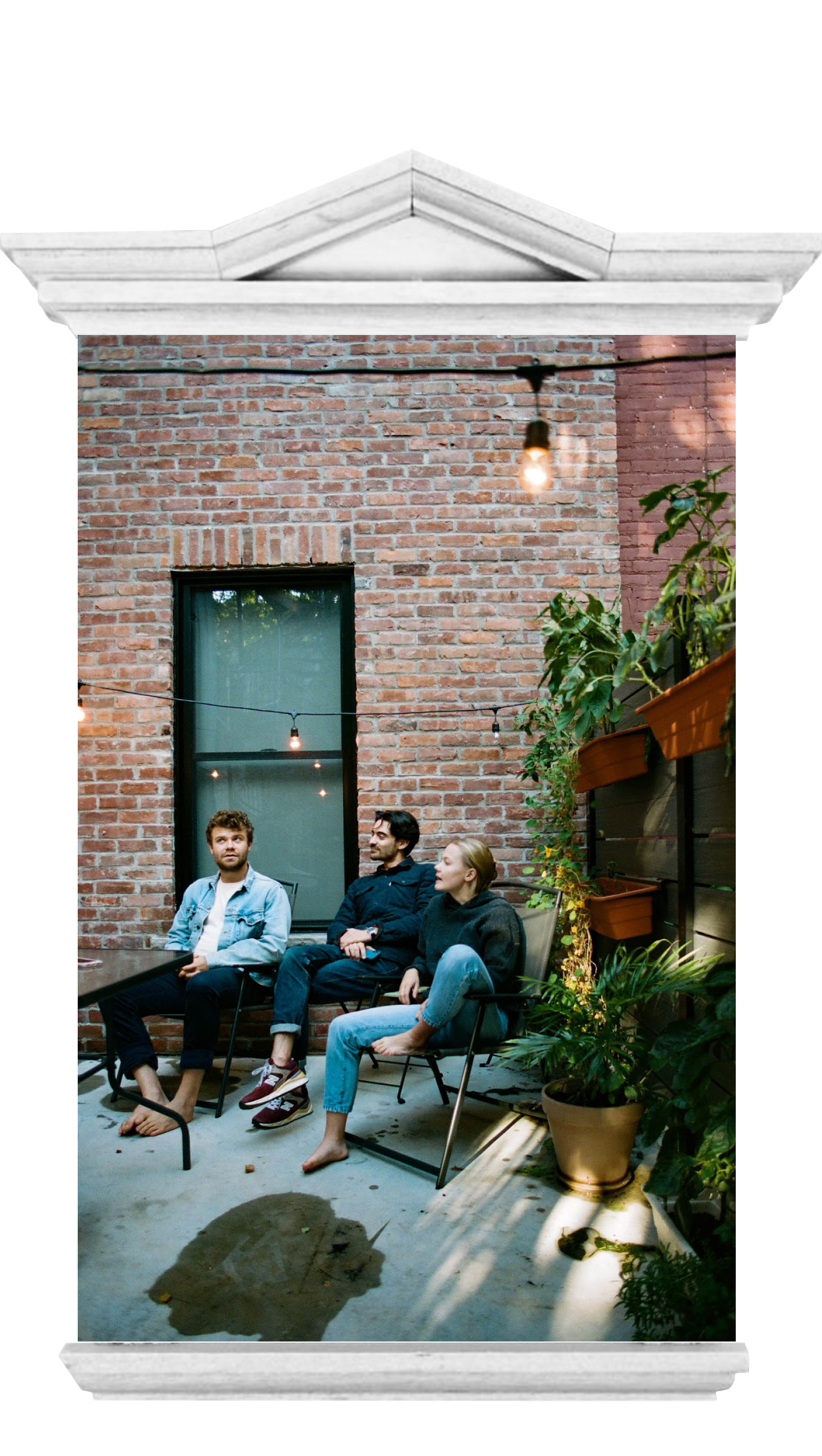
Cait: “The neighbour above us often can see into our window because we don’t close our shades, and he mentioned to our friend, who’s his coworker, that he just sees us doing things all the time. We have dinner at our kitchen table, we sit on the couch, we make breakfast in our underwear and it’s not a big deal to us, but he just sees all of it. I don’t feel like I'm being watched, but there is [always] an element of ‘Oh, Mateo can see us anytime.’”
Nathan: “There’s a guy that has two teeth [left], and he’s really old. I don’t know what language he speaks, [but] it’s not English or French. He kind of mutters. He’s really old and a little bit scary-looking. So, we became friends with him. He walked past today and I said, ‘Are you having a good night?’ and he was like, ‘Yeah, oh you live here?’ and I said, ‘Yeah, I live here!’ and he said, ‘Nice!’ And then he kicked our garbage can three times and kept walking. I like this guy, he’s a total character.”
Isaiah: “People’s lives in these tightly packed apartment buildings really do spill out in the summer, into the front and the back [of the units]. The alleyway is crazy.”
Cait: “There’s a gang of children out there who play Nerf gun games and ride their bikes around. One of them is clearly the ringleader. He has a mullet and runs the show. They’ve learned to swear. They’re really quite active.”
Nathan: “So when you’re sitting out here you just hear screaming, starting at like 7 a.m.”
Isaiah: “One kid will come barrelling down [swearing].”
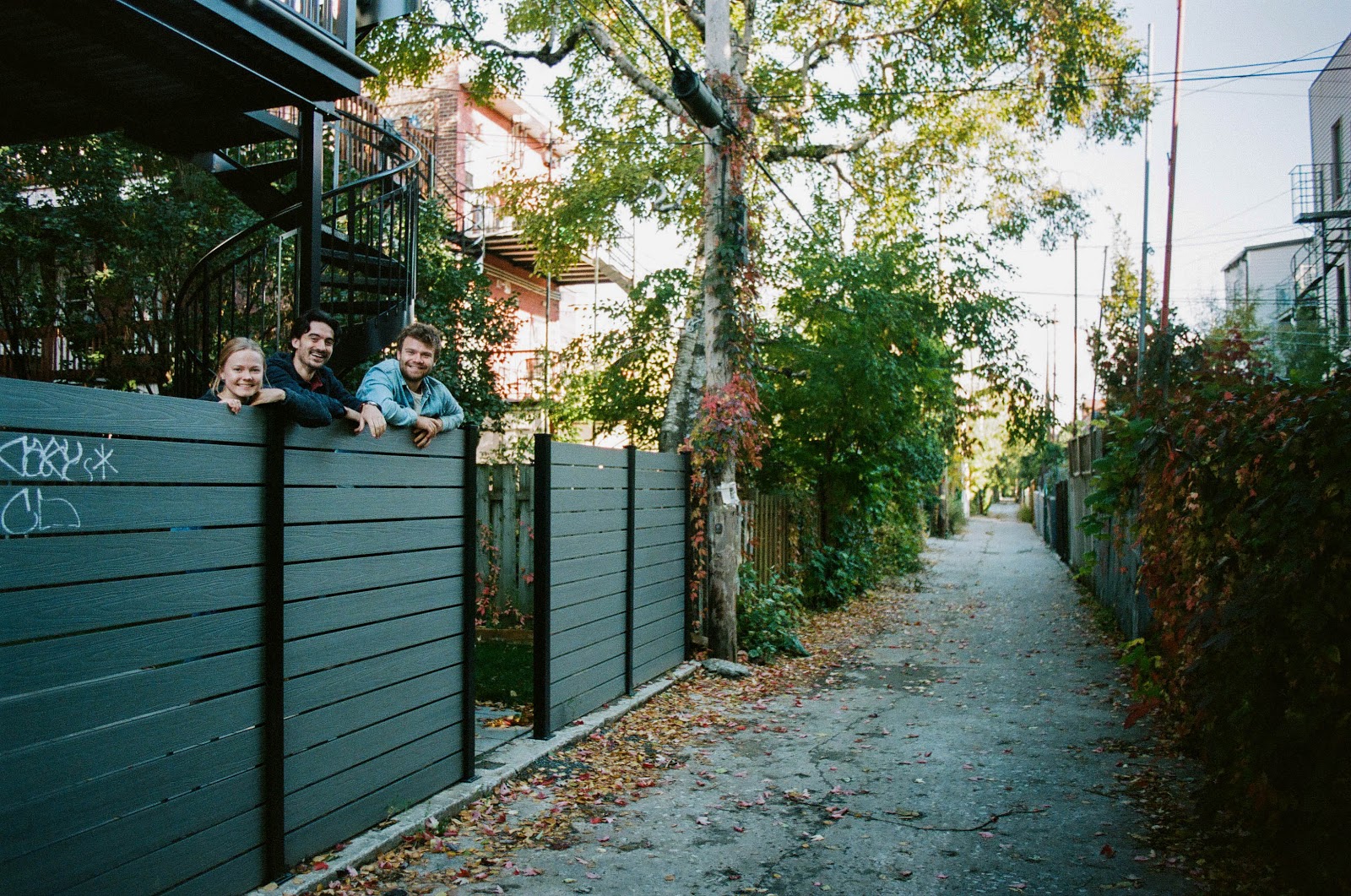
--
Elenne saw my roommates and I on the fire escape and yelled from her backyard, offering to give us one of her papaya plants because she had grown too many. We graciously accepted; we could never have enough plants, especially as the winter was approaching and the trees outside our apartment were beginning to lose leaves.
We told her we were out there all the time, and it was true: Our pandemic days were filled with watching the little world that was our beloved Plateau alleyway. Now, that world had expanded to include Elenne with her papaya plants.
--
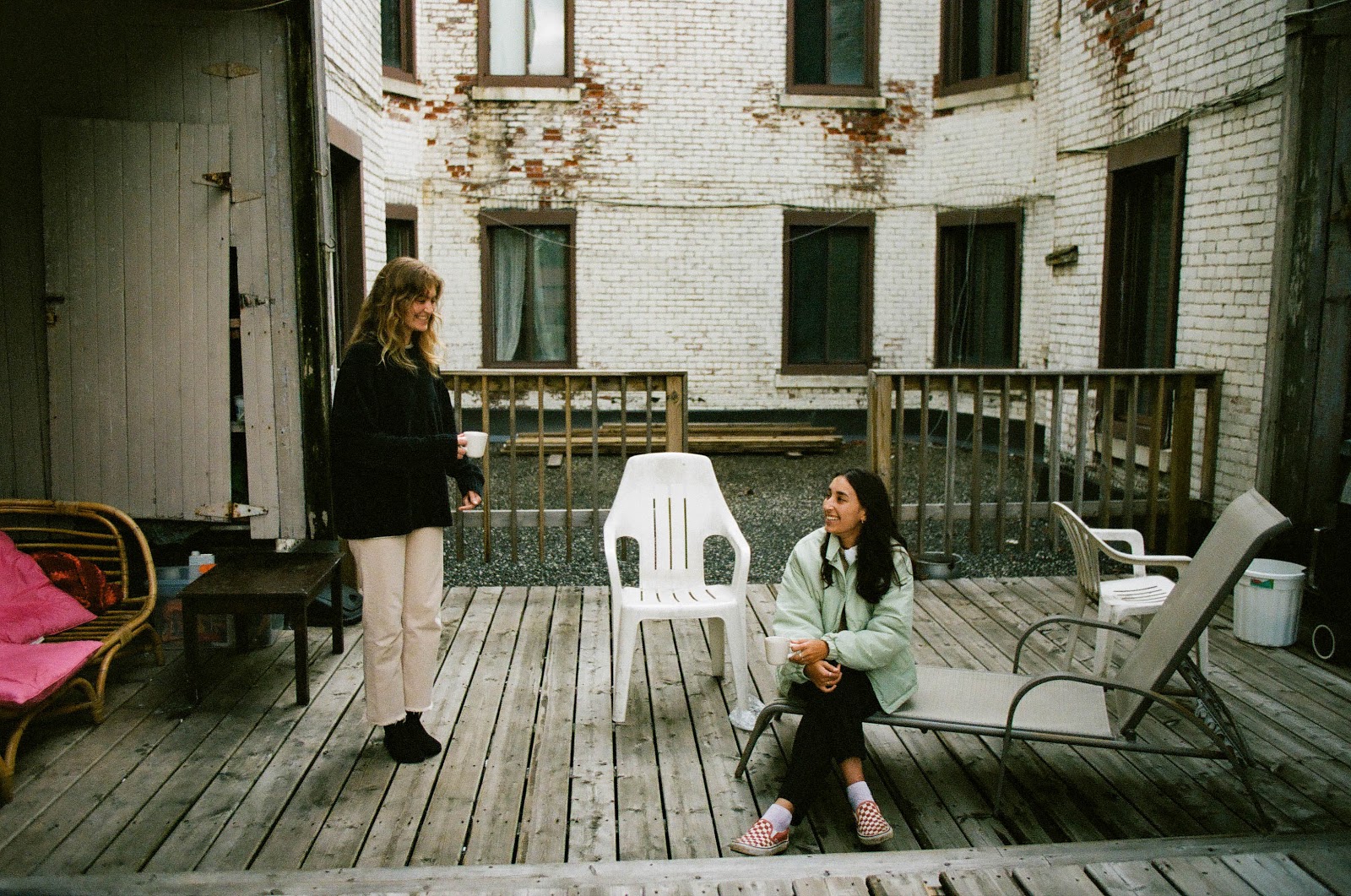
Chai: “We definitely know when [our neighbor Lorenzo] is out on the balcony because our kitchen looks right out at it. I feel like I can weirdly tell what’s going on in his apartment based on [the] music. Like, I can obviously tell when he’s playing the saxophone, and then his music will change when he has different people over. And I can hear him from my room when he has people out on the balcony.”
Josie: “I do appreciate being serenaded by the sweet stylings of Lorenzo from his balcony, so that’s been an unexpected plus. You know the movie Rear Window , [by] Hitchcock? Basically he’s confined to his room because he broke his leg and it’s summer and he’s watching all of his neighbours' lives play out. That’s how I feel because I have a really good view of his entire house and we kind of know his patterns of when he gets home from work and what he’s doing and when he’s cooking dinner. It’s partially invasive but it’s also kind of this mutual agreement where we know the most intimate inner workings of each other's lives. I guess that’s true neighbourship.
“It is such a power dynamic, it’s his ivory tower of obscure Japanese music. I’ve only seen him on the street one time, which was kind of jarring, like ‘Where do I know you from?’ Our relationship is only within the confines of this courtyard. The one time he came down here it was so weird precisely because we were on the same level and having a conversation as peers, which was outside the context of what a neighbour relationship [usually is].
“I feel like Montreal neighbors [share] such a specific kind of experience because [...] the housing is so close together. I think the core ethic of Montreal [living] is that you have to be okay with this bizarre invasion of privacy and you are also getting to invade other people’s lives. You’re kind of always on display, whether you like it or not.”
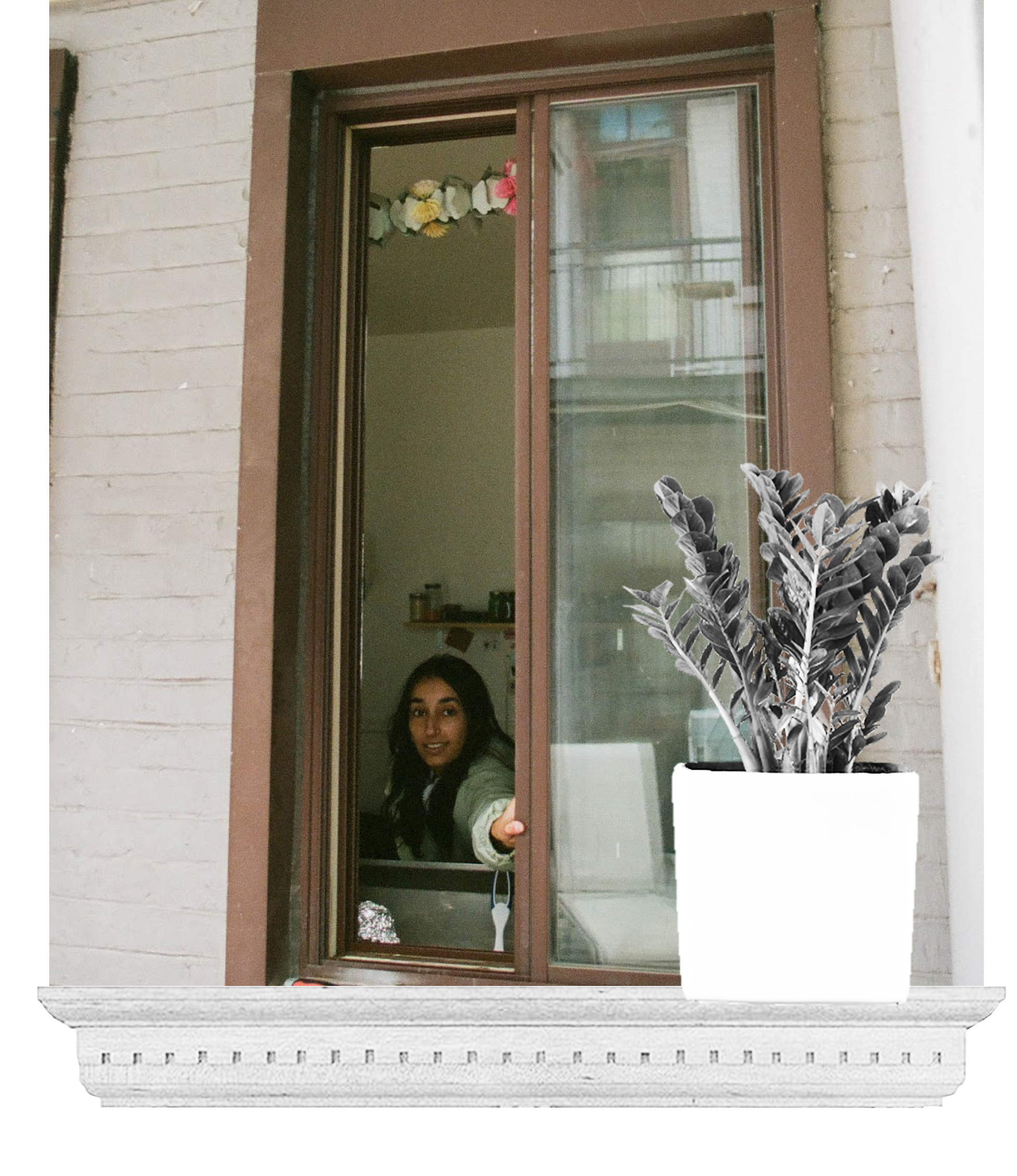
--
The incense drifted into the outside air like a ghost fleeing the dark kitchen window. I knew he was home when I would wake up in the morning and see it across the alley from my bedroom, just as I took in my first glimpse of the new day. I would often catch him lighting the incense like it was some sort of ritual. A tray sat by both windows and he would move from one to the other, grazing the flame to each joss stick with a peculiar sense of urgency. When he looked up, our eyes would meet immediately, as if he already knew I was there. I would always look away. Of course, I couldn’t blame him—our windows were aligned in a way that was naturally invasive. But, I wished he didn’t shift his gaze and interrupt my innocent observation of him. I wanted to be invisible in my bedroom, taking in the little world around me without having to be a part of his too.
--
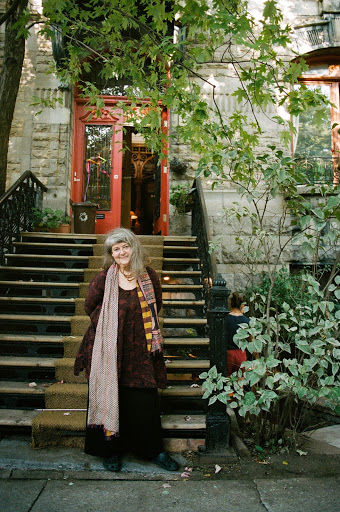
“We moved in here in 1987. Our neighbours Lynn and Robbie had been next door for the previous at least five years, so they were well-established in the neighbourhood. In the beginning it went well. We spoke to them about many things, and at some point, Lynn mentioned that there seemed to be a break in the bricks on her side on our wall. So, we went to look and indeed, there was a huge gap developing. The deal was that we had promised our neighbours that we would take down the back shed of the house which cast a shadow on their garden. When this schism in the wall arrived, we had to prop up the house and fill in the gaps between the props. They were furious, and the next thing we knew we had a letter from their lawyer saying they were going to sue us. This is between hippies, right? This is unheard of. We weren’t on speaking terms anymore for a couple of years. But at some point during that period, Lynn had her first baby, and we already had two. By the time Emily was big enough to play, the kids were working on taking down the fence between the two houses. And finally they broke it open, and then we were forced to be friends after that. It’s very wonderful [that] the power of the kids was so much more powerful than their anger with us. It was just brushed aside. We never actually talked about it.
“So we’ve been through many rough times together now after 30 odd years. In fact, when my partner died they were the only people who, in a sense, forced their way into the hospital and brought food for the four of us. They did the best thing they could’ve possibly done for Bruce, my partner, for his last three days of life. He was intubated [and couldn’t speak], and they said ‘[Write] him an alphabet [so he could then point to letters and talk to us]!’ As soon as the alphabet was made, Bruce was just in heaven, [as] he could communicate.
“In the interim period, the kids became teenagers. There were all sorts of difficult periods between the teenagers, but we went through that with them, trying to figure out how to be good parents. In the meantime, the kids were always friends. The kids made it all okay. From a very difficult beginning, we’ve ended up being the best neighbours.”
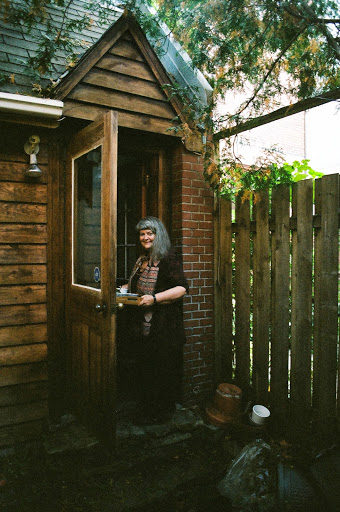
--
Some evenings, I would quietly observe the young couple that lived across the alley from above. From my third story window, I could look down into their ground floor apartment and only see their hands chopping vegetables, their feet pacing around the kitchen floor as they cooked. I would notice them while cleaning my room or reading out on the fire escape, and I would try not to stare when they’d bring out their dinner and sit in the same seats they always did on their patio, facing one another with a candle lit on the table. But I couldn’t help it: There was something so comforting about the way they ate together. They always had wine and their food always smelled good. The tuxedoed cat always sat by their feet and, when the meal was finished, the cat would jump back inside through the same small gap in the window. Though we had never spoken, they were my favorite neighbours of the alley. I liked to imagine what their lives were like together beyond those dinners.
--
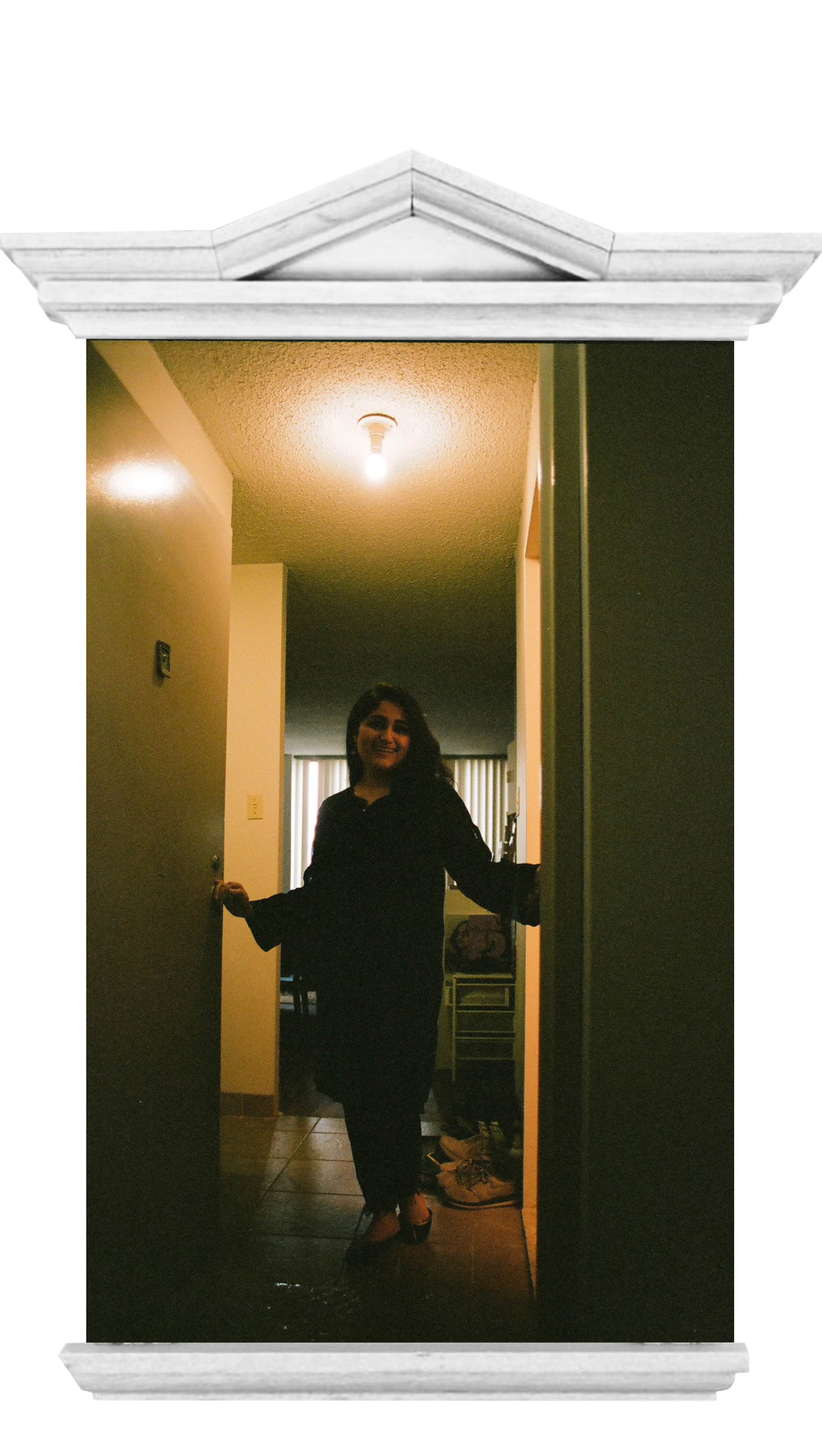
“I’ve been living here for a year and I don’t really know a lot of my neighbours. When COVID started I was alone in my apartment, and one day I was walking, [...] I saw two of my neighbours with their friends, and they were laughing and making jokes and I thought, ‘Wow, that must be nice to be with someone during the lockdown.’ I smiled at them but obviously they didn’t see me because I was wearing a mask. One night, I heard a knock at the door. As soon as I walked out they were here with a little pasta jar and they were like ‘Oh, we weren’t able to open this and we saw you that day, could you help us?’ And that was so human. It was very reminiscent of how home is. There is a lot of connection, people just casually show up at your door. The community is very different and close-knit back home. I felt a bit of home in that experience.
“I definitely do miss [Pakistan] and the neighbour vibe. Also, this was during Ramadan, so that's a holy month for Muslims. What we do is that we go around and take food to other neighbors and talk to them and sometimes have them over. I think that was a very key part of my childhood and growing up, so definitely I do miss that [here]. I do miss seeing people, knowing what they’re up to and who they are.”

--
There was screaming coming from the apartment next door. I was just sitting on my fire escape, reading. I wondered what could upset someone so much that they’d want to speak to anyone that way.
Just as I was considering what to do, a woman emerged from the apartment and sat on the fire escape next to me. She lit a cigarette and said nothing.
I wondered if I should acknowledge her but allowed the silence.
“What are you reading?” she asked, breaking it.
I answered and asked if she was okay. I heard the yelling and was alarmed.
“Oh yeah,” she said. “That’s my boyfriend and his roommates. They do that all the time.”
--

“I have friends whose family is defined by people who live in their village. I feel that too where I’m from, [in Fitzroy Harbour, unceded Algonquin-Anishinaabeg aki]. If you’re from where I’m from, then we’re family. It’s weird how that changes in an urban setting. There’s no ‘Oh, we both live in Rosemont, so we’re family.’ The idea of neighbours is so disconnected from family, but how I grew up knowing it, it’s very different.
“[In Rosemont], it seems [it’s] all three-story houses and multiple units, so I’ve never gotten the vibe that it’s one family in one house. It’s like a clown car, every house. I think there’s nine people that live in my house, and so many of them I haven’t met. Which is really interesting to me, the fact that we live in the same house and we haven’t interacted. ”
“I have this one neighbor. Her name’s Vivian, which is a weird name because it’s the name of my favorite neighbour [who is like] my second mom from my home village. But anytime I see her, I feel like we both feel that COVID anxiety where we don’t really want to be in the same space, so it’s always a really quick interaction.”
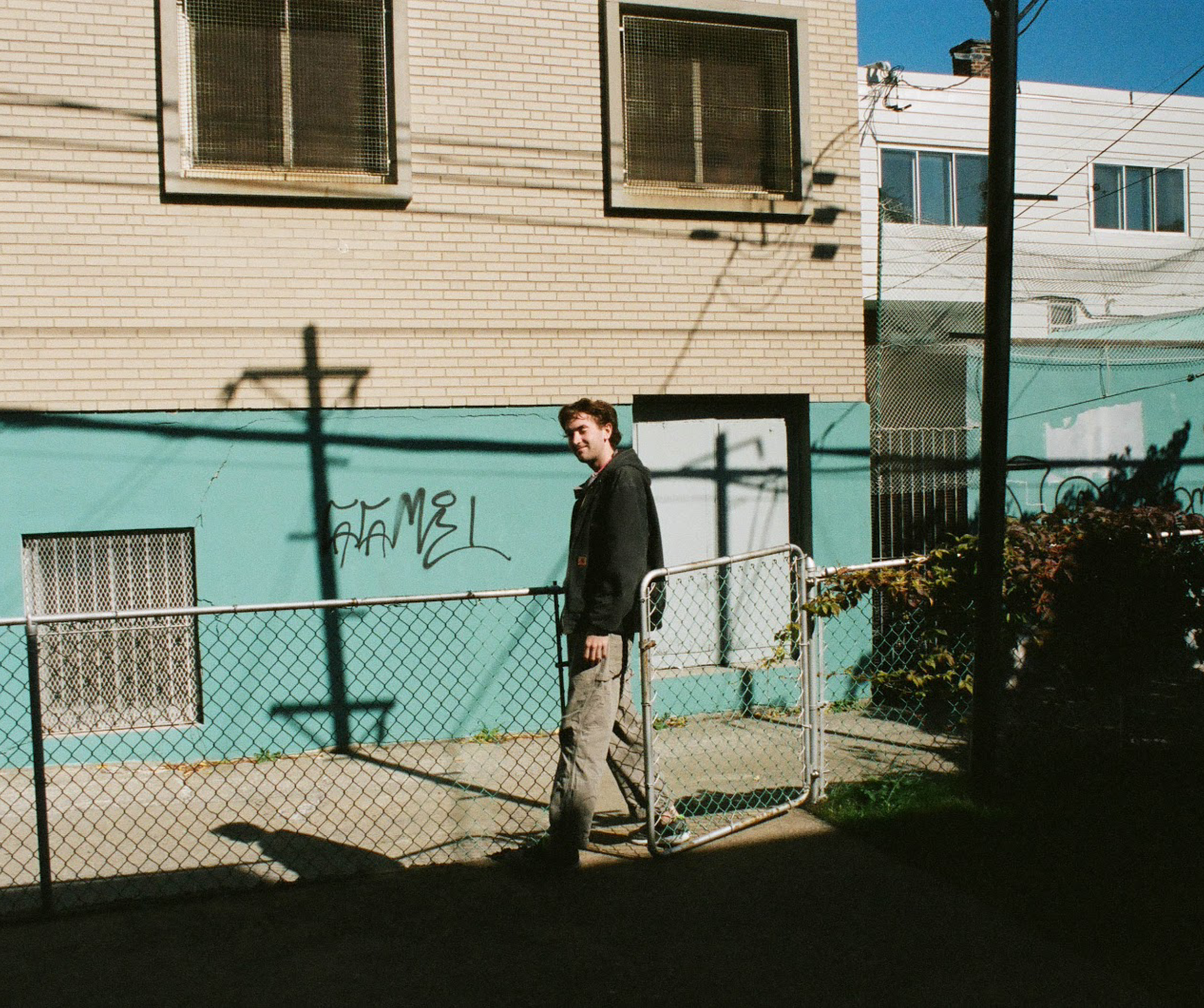
--
It’s fall now and we’re in lockdown again. From across the alley, Elenne’s cat watches the strangers walking down below with me. She is like just another one of the neighbours. We occupy different apartments and live different lives, but we find a mutual amusement in watching the squirrels dance along the electric wire. Our shared moments of peace are often interrupted by the men fighting next door. We both come and go to our respective windows, curiously looking outwards as we’re stuck inside.
--